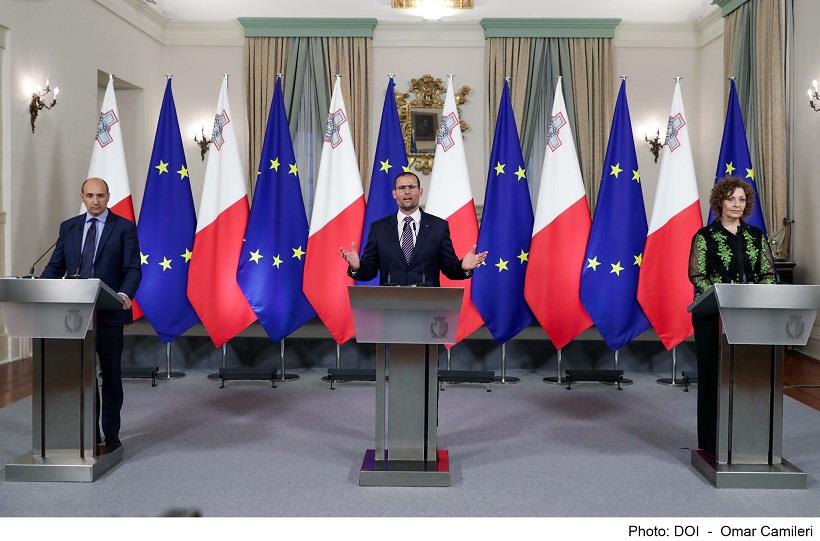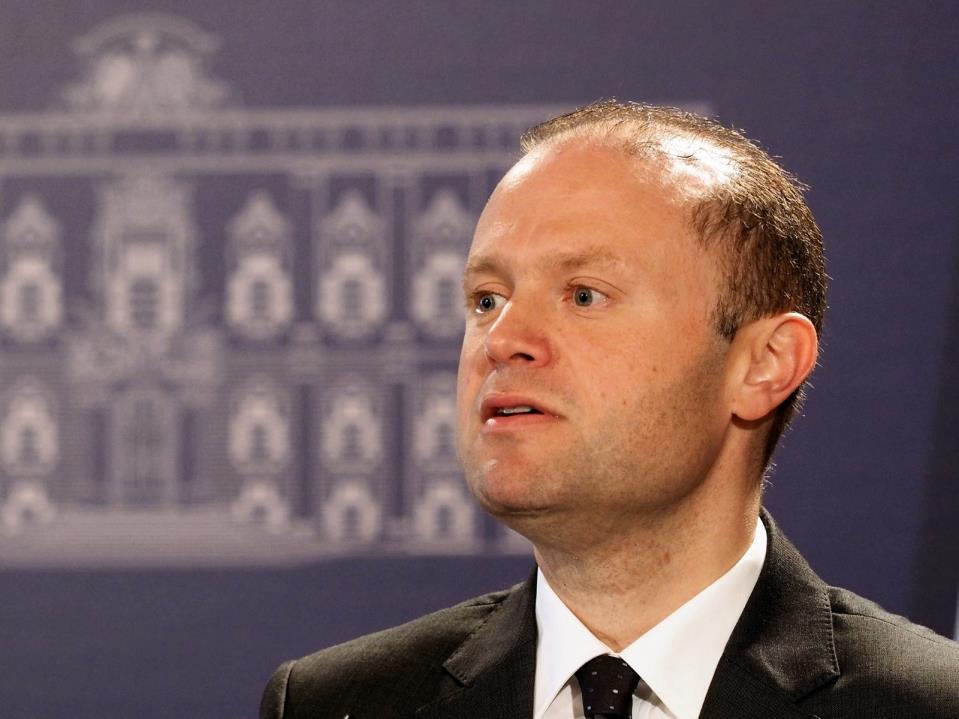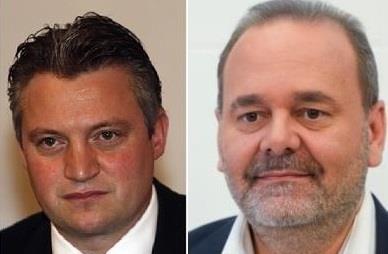In their memoirs, all Prime Ministers in office during 2020 will probably write that the year which has just ended was the most difficult for them.
The Covid-19 pandemic brought with it a variety of unprecedented problems which forced tough decisions, some of which needed to be taken quickly, and many of which turned out to be the wrong ones. The health issues were compounded by the economic repercussions which, it is agreed, will last longer than the medical consequences. The start of a vaccination campaign late last year gave new hope, but the precarious situation has spilled over into 2021, as the number of cases is going up again, and the light at the end of the tunnel is still a tiny speck in the distance.
For Robert Abela, 2020 was also his first year as Prime Minister of Malta, a title he earned after winning the Labour Party leadership election against Chris Fearne on 13 January. A full year has passed, one that was characterised by the Covid-19 pandemic but which also offered other tough situations the PM had to deal with.
The pandemic waves
Less than two months into his tenure, Malta registered its first Covid-19 case. It was 7 March, and since then the number of cases has climbed to some 14,000, with more than 230 deaths. It was a slow first wave, and ironically it was the time when the restrictions imposed by the government were the harshest. Perhaps because, at the time, information was limited. Or because it was thought that the problem would be overcome in the short term.
Abela was at first reluctant to close the airport, retail outlets and the schools, but felt compelled to do so a few days later as public pressure mounted. The government also felt the need to financially assist businesses as many jobs were on the line; a first plan was half-baked and needed to be corrected with more measures, some of which are still in place today, although in a different format. These plans have helped many businesses survive, and jobs to be saved.
Just before summer, Abela wrongly thought that the situation had been brought “under control” and that “waves are only in the sea”. But as soon as restrictions were eased Malta was hit by a tsunami – we were close to zero active cases in mid-July, but they quickly multiplied to reach nearly 2,200 in November, dipped to around 1,500 until before Christmas but have risen sharply again, to a record 2,221 yesterday.
Abela’s over-confidence was one of the causes of this larger outbreak in the middle of summer. He appeared to belittle the high contagion factor and his attempt to appear in business-as-usual mode sent the wrong message. The impression he tried to give that these were not abnormal times – and his back tracking on fines that had been dished out for breaking quarantine rules – did not help instil better discipline.
He insisted that the airport is re-opened and, so far, the results justified his decision: the number of imported cases was fractional (although we also imported the new variant from the UK).
Yet problems have once again surfaced in the education sector, where a two-day strike was ordered by the Malta Union of Teachers in its bid to protect its members. The government-union confrontation is still open. Church and independent schools have remained shut after the Christmas holidays, but the government, backed by the health authorities, is adamant that government schools should remain open.

Mixed messages
Since the start of the pandemic, it was apparent that Abela and Fearne were not on the same page on how to tackle the issue. This led to mixed messages being dished out, confusing an already bewildered population. It’s happening right to this day, with Abela saying that we should start getting back to normal by March and the economy should be ready to start running in May, when it is clear to all those who want to see that this will not be the case.
His optimism is not corroborated by Fearne, who has said that the vaccination campaign will cover the frontliners and vulnerable people only by May, and it is only afterwards that the rest of the population will be invited to be inoculated. He’s indicating the end of summer as a target, but the goalposts might change.
Abela is therefore wrong again to forecast that things will be restored to pre-Covid days by May. This obsession of his that he wants Malta to be the first country to recover from the virus could once again lead to hasty decisions that will backfire, as they did last July. Better wait an extra month or two rather than risk going back to square one.
Over the past year, Abela always came across as trying to sell the idea that we are in normal times. And yet, news from abroad tells us that lockdowns have been imposed as the virus surges again, for the third time. Here in Malta, lack of restrictions over the Christmas festivities – except for the closing of bars and clubs – are once again leading to an increase in the number of cases, prompting Fearne to warn that further measures might need to be taken if the upward trend in cases continues. But we’ve heard nothing about this from Abela.

The Joseph Muscat aftermath
But Abela’s first year in office as PM was not just the pandemic.
It was, first of all, the initiation of a new chapter for Labour after the departure of Joseph Muscat, who remains revered by the diehards but despised by the rest for his inability to deal with scandals which rocked his premiership and ultimately forced his resignation, and also tarnished Malta’s image.
It is not easy for anyone to replace Muscat in the minds and hearts of Labour supporters. To them, he remains an idol, a politician to be adored because he demolished his political adversaries and took the party to unprecedented glory.
Abela found himself in the middle – he wanted to give the country the impression that a page had been turned, that scandals were a thing of the past and that he is the future. But at the same time he did not want to dismiss Muscat as if he never existed. He would never be forgiven by the Labour grassroots had he done so.
He was extremely cautious in the way he dealt with Muscat, but he quickly discarded the idea that the former leader should serve as consultant when he understood it would have been detrimental to his cause. Then he let events take their course until Muscat eventually opted to move out of politics completely, resigning his seat in Parliament.
But Abela still finds himself having to deal with controversial situations that started under Muscat and still take up public attention right to this very day. The Daphne Caruana Galizia murder is only the most important of the lot, given that the drama in the various courtrooms continues to add more loose ends and open new avenues of investigation.
Abela was right to rule that the memorial dedicated to the journalist in front of the law courts building should no longer be removed; it was one of the first decisions he took. But then he was wrong to insist that a deadline given to a public inquiry into the murder is followed to the letter.

Chris Cardona and Konrad Mizzi
Abela was correct to distance himself from people who were closely associated with Muscat. Both Chris Cardona and Konrad Mizzi were kept out of the Cabinet he appointed last January. The first immediately realised that he no longer had a future in politics and moved out; the second, Mizzi, stubbornly remained and had to be kicked out of the party.
Credit must be given to Abela on this, as he took time to convince the Labour top brass that they needed to eliminate Mizzi from their ranks to be able to move forward. That he also pulled back from having Mizzi appointed as Malta’s representative on the OSCE and terminating Mizzi’s contract as a consultant to the Tourism Ministry is also a feather in Abela’s cap.
The resignations of Peter Grech from the post of Attorney General and that of Lawrence Cutajar from the post of police commissioner are not decisions taken directly by Abela, but they came about as part of the fresh approach that the PM laid out soon after taking over.
Two Cabinets in 10 months
Where Abela exaggerated badly is in the composition of his first Cabinet and, in the reshuffle carried out in November, he made things even worse. He twice established new records in the number of ministers and parliamentary secretaries he appointed. Malta does not need to have so many, and some ministries were literally invented just to keep his MPs happy. He did, however, realise that he committed some mistakes in his January set-up, and corrected them in November. Still, he should have had the courage to remove ministers who under-performed.
The positive side of Abela’s decisions regarding the Cabinet was the opportunity he gave to the younger generation of Labour politicians. It must be said that the PL has managed to produce better politicians in the last decade when compared to the Nationalist Party. To be fair, some are living up to the expectations, others no.
Where Abela has been found wanting – several times – is in his boasting and arrogance. For example, saying that the second Labour legislature was better than the first is something he should have avoided. For one thing, he is indirectly saying that he is better than Muscat; secondly, and here we go back to the pandemic, his first year in office has seen an economic downturn and a health crisis. Of course, this is not Abela’s fault but, then again, he should not have gone as far as making these comparisons. He is now being too overly-optimistic about Malta’s recovery, when he should be more cautious.
Other matters
In his first year in office, Abela has struggled to clean up the mess left by his predecessor when it comes to corruption and the rule of law. Yes, the passport scheme has been updated and there was an unprecedented agreement with the Opposition on the appointment of the Chief Justice, but the bad reputation built against Malta is still there for all to see, and the impending Moneyval report will probably make things worse.
In these past 12 months, Abela also faced a criminal investigation, instituted by NGO Repubblika, which saw him accused of causing the death of migrants. Abela was cleared, along with the AFM brigadier and the crew of an AFM boat.
He was instrumental in the allocation to Malta of €2.25 billion in funds from the European Union over the next seven years, but is still to deliver on his promise to look into the sale of three public hospitals to the private sector. Controversy still rages there.
He remained more popular than Adrian Delia and, later, Bernard Grech in all newspaper surveys, but was wrong not to congratulate Roberta Metsola on her appointment as a Vice-President of the European Parliament.
And, like Muscat, he is reluctant to face a section of the media. He feels comfortable to be interviewed by friendly journalists and some media houses, but refuses to accept invitations from others.
Maybe in 2021, Mr Prime Minister?